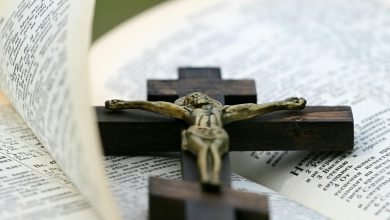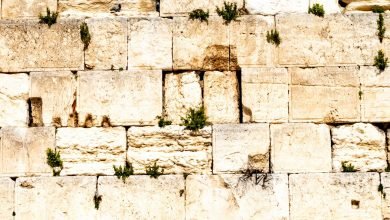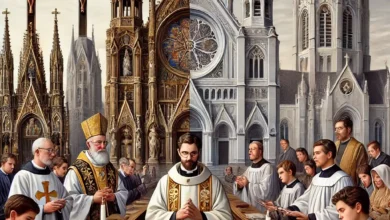
As I stood among the ancient ruins of Shiloh, a place steeped in biblical significance and historical sanctity, I could not help but ponder the profound narrative that unfolded in this holy land. Shiloh, once home to the Cube of the Covenant and the Ark of the Covenant, served as an important spiritual and administrative center in Israel for nearly four centuries. Imbued with the presence of God and the fulfillment of prophets, this land offers a unique window into the enduring covenant between God and His people.
Today, Shiloh is not just an archaeological curiosity; Rather, it is a living testimony to the continuous fulfillment of Bible prophecies. As mentioned in the book of Amos, God promised the restoration and permanent security of his people in their land. This promise, engraved in the landscape of Shiloh through the cultivation of vineyards and gardens, reflects the regeneration of Israel and speaks of God’s unwavering faithfulness. Amos chapter 9 verses 13 to 15 says:
“Behold, the days are coming,” declares God,
“That the plow will reach the reaper,
And the cluster of China to the one who sprinkles the seed;
The mountains will drip with sweet wine,
And all the hills will flow from it.
And restore the fortune of my people Israel,
And they will build the ruined cities and dwell in them;
And they shall plant vineyards and drink their wine,
And they will build gardens and eat their fruit.
and I will plant them in my land,
and never again from the land that I have given them,
They will not be torn down.
God, your God says.

Does ancient Shiloh (biblical city) help to understand the significance of red bulls?
Yes, the importance of Shiloh increases with its association with red cows. Red bulls are venerated in Jewish tradition for their role in the purification ritual foreseen for the construction of the Third Temple. This element adds a deep layer to the historical and apocalyptic significance of this place, linking the traditions of the past with the hopes of the future.
Numbers 19:1-10 details God’s instructions to Moses and Aaron regarding red bulls, specifying that the Israelites must provide a red bull without blemish that has never been yoked. Unlike other sacrifices that took place inside the camp, this one required that El-eazar, the high priest, take the cow outside the camp for slaughter. After that, El-Ieazar was supposed to take some of its blood with his finger and sprinkle it seven times towards the Tabernacle of the Covenant. Then the whole animal, together with its waste, must be burned before his eyes, and cedar wood, hyssop, and red thread added to the fire.
The ash from the red cow was then collected by a ritually pure person and mixed with water. With this ash, the cleansing process involved mixing it with pure water and sprinkling the solution on those who were impure and entering the temple. This is a permanent commandment, and some texts refer to it as an “eternal commandment” for both the Israelites and the foreigners living among them.
In theological debates, especially among Christians who are waiting for the second coming of Christ, the red bull has a deep end-time significance. As early as 51 AD, the apostle Paul, in his letters to the Thessalonians, discussed the expectations surrounding Christ’s return. For some believers, the appearance of a flawless red bull corresponds to prophetic signs that indicate the end of time.
What is the importance of the third temple?
The presence of red bulls leads to the discussion of the Third Temple, a topic that is often fraught with concern and controversy. The temple symbolizes a broader theological vision – one that focuses on the final reconciliation and peace among all religions, as stated in Isaiah chapter 2 verse 2: “In the last days, the mountain of the Lord’s house will be built on the top of the mountains. and it will be higher than the hills, and all the nations will flock to it.” This prophecy predicts the gathering of all nations in worship and peace, beyond historical divisions and conflicts.
This scenario challenges us, as contemporary faith leaders, to reflect on our role in this unfolding divine narrative.
Moreover, Psalms 86:9 affirms the comprehensive scope of God’s saving plan: “All the nations that you have made will come and worship before you, O Lord, and they will glorify your name. ” King David’s words predict a time when God’s sovereignty will be universally recognized and invite each of us to participate in this glorious, communal act of worship.
In light of these reflections, I encourage every believer to consider how he or she can contribute to this prophetic moment through prayer, support for Israel, and active participation in the global community of faith. Let us embrace our part in this greater story of God, a narrative of redemption, restoration, and peace that unfolds every day in places as old and important as Shiloh.
Today in the article : Is the Tale of the Red Heifer Biblical Fact or Prophetic Fiction? We reviewed useful information about the Bible and the way of Jesus. If you wish, you can view other articles of Ali Vahidi about Christianity





